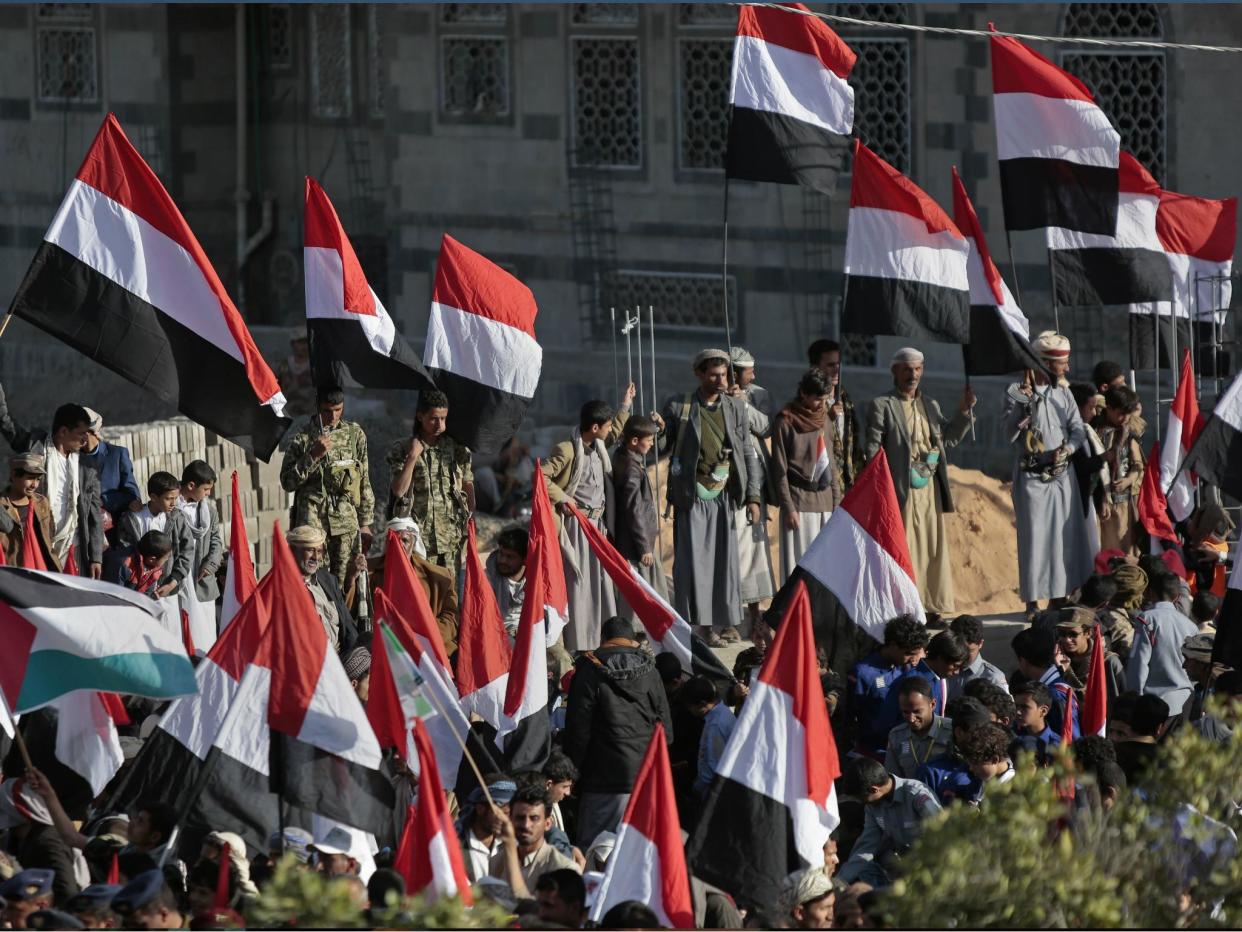Donald Trump calls on Saudi Arabia to end Yemen blockade immediately

US President Donald Trump has called on Saudi Arabia to end its Yemen blockade immediately, citing humanitarian concerns.
Mr Trump said in a statement that he has directed US officials to call Saudi Arabian leaders and request they "completely allow food, fuel, water and medicine to reach the Yemeni people."
He said Yemenis "desperately need it."
A Saudi-led coalition has been fighting to defeat the Iran-backed Houthis and Yemeni President Ali Abdullah Saleh's forces in Yemen since March 2015 with the aim of reinstating the internationally recognized government of Mr Saleh's successor, Abed Rabbo Mansour Hadi.
The US has been supporting the coalition through weapons sales, some intelligence sharing, and refuelling capabilities for air operations.
Since the conflict began, at least 10,000 people have died as a result and 40,000 have been wounded, Al Jazeera reported.
Mr Saleh was killed earlier this week after moving to switch allegiances in the bloody conflict, making the situation in the country unpredictable according to experts.
Unverified footage circulated by Yemeni social media users appeared to a show corpse resembling Mr Saleh.
Armed militiamen unfurled a blanket containing the body and shouted, "praised God!".
However, Mr Saleh's party has denied his death.
They claim he was still leading forces in heavy fighting in Sanaa that has killed at least 125 people and wounded 238 in six days, according to the International Committee of the Red Cross.
The Saudi-led coalition had imposed a blockade on the country last month after Houthi rebels fired a missile on the Saudi capital of Riyadh. It responded by sending a slew of missiles into Yemen's capital Sanaa.
The blockade was partially lifted at the Hudaya port of the international airport in Sanaa and the first aid shipments were allowed to enter the country just last week. In the meantime, aid groups were forced to buy their own fuel in order to assist with relief work.
The country is on the "brink of famine" according to David Beasley, head of the United Nations World Food Programme.
Mr Beasley told CBS: " "I don't think there's any question the Saudi-led coalition, along with the Houthis and all of those involved, are using food as a weapon."
UN head of humanitarian affairs Mark Lowcock had said last month: "it will not be like the famine that we saw in South Sudan earlier in the year, where tens of thousands of people were affected. It will not be like the famine which cost 250,000 people their lives in Somalia in 2011. It will be the largest famine the world has seen for many decades, with millions of victims."
The World Health Organisation has also confirmed that the country is facing a massive cholera outbreak, particularly affecting children; nearly a million reported cases are expected by the end of the year.

